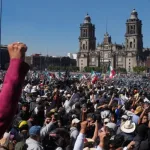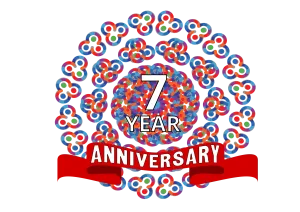
By Kit Klarenberg – Feb 21, 2025
For over a decade, the US State Department’s NERD fund has covertly funneled hundreds of millions into regime-change efforts in Iran, disguising digital warfare and opposition funding as ‘democracy promotion’ – but a sudden funding freeze has thrown these operations into chaos.
Earlier this month, The Cradle exposed how in 2023, the US State Department’s shadowy Near East Regional Democracy (NERD) fund earmarked $55 million to stoke unrest in Iran during the following year’s elections.
This was part of a wider US campaign of interference designed to disrupt and destabilize the Islamic Republic. As that investigation noted, details on where this money goes – and who benefits – are strictly confidential as a matter of policy. Still, there are clues in the public domain pointing to at least some recipients.
Regime change by another name
As a US Congressional Research Service report records, due to hostile US–Iran relations, and Tehran’s well-founded view of NERD “as a means of financing regime change,” its programs rely on “third-country training” as well as “online training and media content.”
The report further confirms that despite NERD being Washington’s primary “foreign assistance channel” for projects targeting Iran, “activities, grantees, [and] beneficiaries” are not advertised “due to the security risks posed by the Iranian government.” It continues:
“NERD was created in 2009 as a ‘line item for Iran democracy’ but was not (and is still not) technically Iran-specific … For 2024, the Biden Administration requested $65 million for NERD … to ‘foster a vibrant civil society, increase the free flow of information, and promote the exercise of human rights,’ including at least $16.75 million for internet freedom.”
What was unstated in the report is that NERD represents a simple rebranding of the Iran Democracy Fund, created by former president George W. Bush in 2006 with the explicit goal of toppling the Islamic Republic.
The initiative was ostensibly shut down under Barack Obama three years later, eliciting bitter condemnation from much of the western media, neoconservative pundits, and lawmakers. However, as the BBC acknowledged at the time, the move was in fact “welcomed by Iranian human rights and pro-democracy activists”:
“These US funds are going to people who have very little to do with the real struggle for democracy in Iran and our civil society activists never received such funds,” a Tehran-based human rights lawyer told the British state broadcaster. “The end to this program will have no impact on our activities whatsoever.”
Internet interference
In reality, the program never ended – it was merely repackaged. White House officials maintained the fiction that NERD was focused on democratization rather than regime change, a claim undermined by a June 2011 New York Times exposé.
That investigation revealed the Obama administration’s so-called “Internet Freedom” initiative aimed to “deploy ‘shadow’ internet and mobile phone systems dissidents can use to communicate outside the reach of governments in countries like Iran, Syria, and Libya.”
In other words, Washington sought to build a covert legion of regime change operatives in Tehran, and provide them with the technology to coordinate in secret. It is clear from the Congressional report’s marked reference to “internet freedom” that these machinations continue today.
Moreover, as a 2020 report by the DC-based Project on Middle East Democracy noted, organizations genuinely committed to advancing Iranian rights still steer well clear of NERD. An anonymous NGO worker described its “style” as “aggressive.” Another implied NERD is engaged in deeply dirty work:
“We choose not to apply for NERD grants because we do not want to get pulled into [anything] crazy.”
‘Non-Iranian’
The same year, the Financial Times (FT) reported how NERD efforts had become turbocharged under US President Donald Trump’s administration, explicitly to facilitate and encourage “anti-Tehran protests.”
This included “providing apps, servers, and other technology to help people communicate, visit banned websites, install anti-tracking software,” and more in the Islamic Republic, in order to offer “Iranians more options on how they communicate with each other and the outside world.”
Curiously, while portraying Iran as a digital prison, the FT admitted that major western social networks remain accessible in the country, and Iranians can easily view western media. As usual, recipients of NERD funds remained unnamed – except for Psiphon, a VPN provider long-associated with discredited exiled Iranian opposition figures and, by then, controlled by the Open Technology Fund (OTF). The FT estimated that just three million Iranians used Psiphon, less than four percent of the population.
OTF was an “Internet Freedom” product – one of its board members has openly admitted the Fund’s agenda is “regime change.”
Fast forward to September 2024; as former US president Joe Biden’s administration was seeking increased funds for NERD – mere months after the $55 million invested the previous year failed to produce desired mass unrest and upheaval around that year’s elections in Iran – a White House meeting was convened with major tech giants, encouraging them to offer more “digital bandwidth” for OTF-bankrolled apps and tools.
As fund chief Laura Cunningham explained, a “sizeable chunk” of OTF’s budget was taken up by the cost of hosting all the network traffic generated by its vast array of digital destabilization apps, which included Signal and Tor.
While OTF sought to support “additional users” of these products, it lacked resources to keep up with “surging demand.” What came of this meeting, which was attended by representatives of Amazon, Cloudflare, Google, and Microsoft, is not clear.
Yet, if further “digital bandwidth” was granted to OTF, it is clear the Trump administration’s “pause” in overseas aid funding has thrown all NERD’s meddling efforts in Iran into total – and potentially permanent – disarray.
A 27 January report in the Saudi-funded, anti-Islamic Republic Iran International quoted numerous anonymous beneficiaries of US financing bemoaning how grantees, including foreign-run Persian-language media outlets and organizations documenting purported “abuses” to keep the Islamic Republic “accountable,” had been abruptly shuttered.
An anonymous “human rights activist” told the outlet Washington’s freeze on aid spending “(will) impose restrictions on projects that address human rights violations or investigate governmental and military corruption which have impacted Iran’s economy and social conditions in favor of foreign terrorist activities and money laundering.”
They said “several non-Iranian American institutions [emphasis added] have been using these funds to investigate corruption and money laundering.” Now though, “these organizations will be forced to halt their activities.”
‘Severe implications’
US-supplied Virtual Private Network (VPN) services also loomed large among the malign resources impacted by the aid “pause.” A nameless “activist” told Iran International that 20 million Iranians used such tools “to bypass Tehran’s internet curbs.”
The outlet further quoted an article published by Human Rights Activists in Iran, a US-funded NGO not based in the Islamic Republic, but Virginia, near the CIA’s Langley headquarters: “In today’s Iran, the internet has no meaning without VPNs.”
Such dire warnings were echoed by Ahmad Ahmadian, head of California-based tech firm Holistic Resilience, which “aims to advance internet freedom and privacy by developing and researching censorship circumvention.”
An Iranian expat and alumni of Tehran University, Ahmadian warned major US tech firms “may not be willing or able to continue their support for providing anti-censorship tools” without government support. Such remarks highlight how these supposedly popular resources lack grassroots backing or financing, being wholly dependent on Washington’s sponsorship to operate:
“The leadership of the US government has been crucial in urging big tech companies to provide public services. Without the encouragement of the US government, these companies wouldn’t take the initiative on their own.”
Other unnamed activists further warned Iran International, “the consequences of Trump’s executive order will not remain limited to internet censorship circumvention tools.” They believe that if NERD’s activities “do not receive an exemption within the next month” – by the end of February – “they will either collapse entirely or be deeply curtailed.”
One declared, “the impact of this freeze might not be immediately noticeable, but its severe implications will become evident over time.”
Meanwhile, “internet experts” cautioned that “even if US aid starts again” after the 90-day pause, “the damage is irreversible since many people … might never fully return to using US-backed secure services.”
As The Cradle noted on 11 February, Washington’s forced withdrawal from meddling in Iran could create fresh opportunities for genuine diplomatic engagement between the two long-time adversaries. But another possibility looms: after spending $600 million over a decade with little success, the US may simply be preparing to test out new, potentially more malign regime-change strategies.

Kit Klarenberg
Kit Klarenberg is an investigative journalist exploring the role of intelligence services in shaping politics and perceptions.
- Kit Klarenberg





